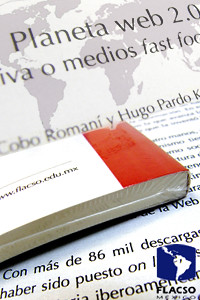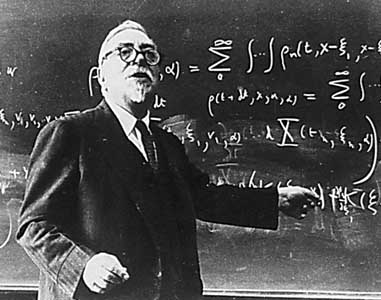Imagine a Web without browsers
Post tan breve como el tiempo libre que me queda para escribirlo. El autor de educationfutures me ha recomendado un artículo de Tim O'Reilly que me ha parecido interesante. En un post en su Blog Radar sostiene la idea que la Web 3.0 es una falacia.
Sin duda que tras esa afirmación uno podría sospechar que él aún tiene interés en seguir sacando provecho del término 2.0, que su compañía acuñó y que tanta rentabilidad le ha dado. Sin embargo, recoge algunas ideas interesantes:
Es evidente su interés por evitar que esta etiqueta pasajera de Internet no pase de moda ( no olvidar la obsolescencia planificada). Sin embargo, nos parece que lo más potente está en las ideas satélites que de ahí se desprenden.
Hoy, converger la Web 3.0 y la web semántica es asociación espurias. Ambas tiene relación con transformaciones radicales del Internet que hoy conocemos. Y hablar de 2.1, 4.0 o lo que sea es sólo un juego que caerá bajo la Ley de Moore Semántica, como todas las etiquetas anteriores.
Finalmente, revisando un poco más allá del tema de las marcas, nos parece valiosa esa idea de pensar en aquellas transformaciones paradigmáticas de la WWW, tanto en su arquitectura, navegación, distribución. Creo que la idea “imagine a Web without browsers”, es una invitación a explorar dimensiones aún deshabitadas sobre los futuros usos de la tecnología en línea.
Aquí lo único que nos queda claro es que nadie tiene nada muy claro… y eso además de ser muy divertido es una oportunidad para repensar lo que ya creíamos resuelto.
Sin duda que tras esa afirmación uno podría sospechar que él aún tiene interés en seguir sacando provecho del término 2.0, que su compañía acuñó y que tanta rentabilidad le ha dado. Sin embargo, recoge algunas ideas interesantes:
The real difference between Web 2.0 and the semantic web is that the Semantic Web seems to think we need to add new kinds of markup to data in order to make it more meaningful to computers, while Web 2.0 seeks to identify areas where the meaning is already encoded, albeit in hidden ways. E.g. Google found meaning in link structure (a natural RDF triple)…. But when people ask me what I think Web 3.0 will be, I don't think of the semantic web at all. Web 3.0… will be far broader and more pervasive than the web, as mobile technology, sensors, speech recognition, and many other new technologies make computing far more ambient than it is today.Tim O'Reilly.
Web 3.0, in my opinion is best defined as the third-decade of the Web (2010 - 2020), during which time several key technologies will become widely used. Chief among them will be RDF and the technologies of the emerging Semantic Web. While Web 3.0 is not synonymous with the Semantic Web (there will be several other important technology shifts in that period), it will be largely characterized by semantics in general…Web 3.0 is an era in which we will upgrade the back-end of the Web, after a decade of focus on the front-end (Web 2.0 has mainly been about AJAX, tagging, and other front-end user-experience innovations.) Nova Spivack.
Personally, I feel the vague lineaments of something beyond Web 2.0, and they involve some fairly radical steps. Imagine a Web without browsers. Imagine breaking completely away from the document metaphor, or a true blurring of application and information. That's what Web 3.0 will be, but I bet we will call it something else. Stowe Boyd.
Es evidente su interés por evitar que esta etiqueta pasajera de Internet no pase de moda ( no olvidar la obsolescencia planificada). Sin embargo, nos parece que lo más potente está en las ideas satélites que de ahí se desprenden.
Hoy, converger la Web 3.0 y la web semántica es asociación espurias. Ambas tiene relación con transformaciones radicales del Internet que hoy conocemos. Y hablar de 2.1, 4.0 o lo que sea es sólo un juego que caerá bajo la Ley de Moore Semántica, como todas las etiquetas anteriores.
Finalmente, revisando un poco más allá del tema de las marcas, nos parece valiosa esa idea de pensar en aquellas transformaciones paradigmáticas de la WWW, tanto en su arquitectura, navegación, distribución. Creo que la idea “imagine a Web without browsers”, es una invitación a explorar dimensiones aún deshabitadas sobre los futuros usos de la tecnología en línea.
Aquí lo único que nos queda claro es que nadie tiene nada muy claro… y eso además de ser muy divertido es una oportunidad para repensar lo que ya creíamos resuelto.
Etiquetas: futuro, Internet, tecnologìa, web semántica













<< Home